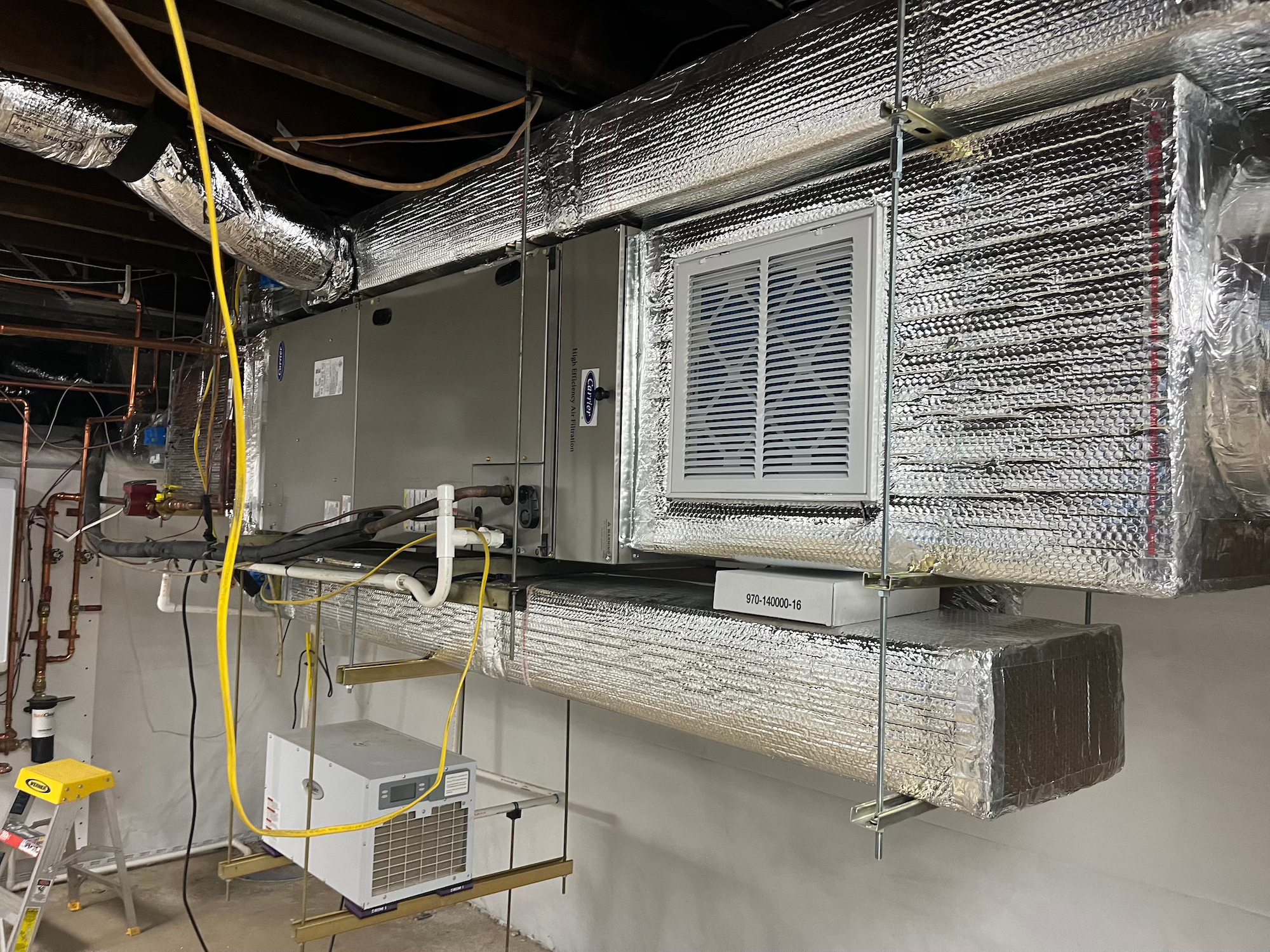
You probably don’t think about your HVAC system very often—until it starts making weird noises. It’s hard to ignore banging, clanging, and rattling sounds coming from your HVAC system, and if you don’t want your system to break down, you shouldn’t. While some sounds are normal, others could signal serious problems, or even mean it’s time to consider replacing your heating and cooling system.
Here are some of the most common HVAC issues associated with strange noises and what they could mean for your system.
1. Persistent Humming Noise
An HVAC humming noise might seem harmless, but it’s often a sign that something’s not quite right. If your system normally hums but suddenly gets louder, the culprit could be an electrical issue, a failing motor, or loose components.
When to Be Concerned:
- If the humming gets noticeably louder over time
- If it’s accompanied by performance issues like weak airflow or inconsistent heating
- If you hear a humming noise, but the system won’t turn on (this could indicate a bad capacitor or motor failure)
How to Fix It:
In some cases, tightening loose parts or replacing a capacitor might resolve the issue. However, if your HVAC system is older and experiencing multiple problems in addition to a humming sound, replacing it could be the better long-term solution.
2. Mysterious HVAC Rattling Noise
A sudden HVAC rattling noise is never a good sign. It could mean anything from a loosely attached panel to a serious mechanical failure. Over time, the constant vibrations of your system can cause screws, bolts, or even internal components to shake loose.
When to Be Concerned:
- If the rattling is coming from inside the unit rather than the exterior panels
- If you hear a consistent clanking or banging sound along with the rattling
- If the system struggles to heat your home or frequently turns on and off
How to Fix It:
Start by checking for loose panels or debris around the unit. If the noise persists, it could indicate a broken fan blade, compressor issues, or even a failing heat exchanger—problems that often signal it’s time to consider a heating and cooling system replacement, especially if your system is over 10 years old.
3. Screeching or Squealing Sound
High-pitched screeching noises are among the more alarming HVAC sounds, and for good reason. They often indicate a problem with the blower motor or fan belt.
When to Be Concerned:
- If the sound continues for more than a few minutes after startup
- If it gets worse over time or happens frequently
- If you notice reduced airflow or your HVAC system has trouble maintaining the temperature in your home
How to Fix It:
Blower motor or fan belt issues are repairable, but if your system is aging, these kinds of problems can be the beginning of a bigger decline. If repairs are frequent, investing in a new, more energy efficient HVAC system like a heat pump or high-efficiency furnace might be the smarter move.
4. Banging or Clanking Sound
A loud banging or clanking sound inside your HVAC unit is never good news. It often means a major component—like a fan blade, motor mount, or even the compressor—is loose or failing.
When to Be Concerned:
- If the sound is loud enough to be heard throughout the house
- If you feel your HVAC system vibrating more than usual
- If heating performance has noticeably dropped
How to Fix It:
If the compressor is damaged, a replacement might be necessary. However, compressors are expensive to replace, and in an older system, it’s often more cost-effective to upgrade to a newer, high-efficiency unit.
5. Buzzing Sound
A persistent buzzing noise coming from your HVAC system could point to electrical issues, like a bad capacitor or a wiring problem.
When to Be Concerned:
- If the buzzing is coming from the outdoor unit and won’t stop
- If your system struggles to start or frequently shuts off
- If the buzzing is accompanied by a burning smell
How to Fix It:
Electrical problems can sometimes be repaired, but if they’re recurring, they could be a symptom of a system on its last legs. Upgrading to a new heating and cooling system can eliminate these issues while improving efficiency and reducing energy costs.
When to Consider an HVAC Replacement
Some common HVAC problems can be repaired, but if you’re dealing with multiple breakdowns or your system is over 10-15 years old, replacement is often the better choice. Newer systems are far more energy-efficient, quieter, and come with advanced features that improve comfort and lower your utility bills.
Signs It’s Time for a New HVAC System
- Frequent breakdowns and repairs
- Rising energy bills due to an aging, inefficient system
- Uneven heating/cooling or hot and cold spots throughout your home
- Strange noises that persist even after repairs
Ready to Upgrade Your HVAC System?
If your heating and cooling system is making strange noises, Total Home Performance can help. Unlike most HVAC companies, we are a whole-home performance expert. That means we don’t just swap out your old HVAC unit for a new one. We inspect your entire home, test for inefficiencies, and make sure a new HVAC system will actually solve the problems you’re dealing with in your home. If a heating and cooling replacement is needed, we’ll install a new system that’s sized and designed specifically for your home, ensuring the best possible energy efficiency, comfort, and longevity.